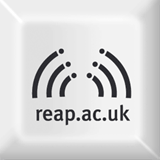Re-Engineering Assessment Practices in Scottish Higher Education
Resources at a glance:
Project Overview
- The REAP project: 2 page bullet point summary (PDF)
- The REAP project: 4 page overview (PDF)
- Journal articles and publications
Module Redesign
- Assessment principles underpinning redesign
- Disciplinary examples of module redesign
- The research rationale
- Interactive lectures and electronic voting (PDF)
Institutional Strategies
- Abrupt transformation at CBS (PDF)
- Revised policy on assessment at the University of Strathclyde (PDF)
Managing transformational change
- Assessment as a driver for institutional transformation (PDF)
- Course redesign using ICT: advice for senior managers (PDF)
Dissemination

“The REAP project has demonstrated that assessment redesign with technology can result in improved learning, higher student satisfaction and more efficient use of staff time.”
The REAP project has now ended. However, these pages capture its lasting legacy. The other parts of this website are being actively developed and are building on the findings of the REAP project by highlighting new ideas and initiatives.
What was REAP?
- REAP stands for Re-engineering Assessment Practices
- the REAP project received funding from the Scottish Funding Council during 2005-07 under its e-Learning Transformation Programme
- the REAP partners are the University of Strathclyde (lead), the University of Glasgow and Glasgow Caledonian University
- REAP piloted the redesign of formative assessment and feedback practices in large-enrolment first-year modules across these three institutions.
- and developed strategies for embedding new thinking about assessment into institutional policies and quality enhancement processes
Why was REAP important?
- assessment and feedback are critical drivers of student learning
- they are demanding in terms of staff time and resources.
- they deeply affect the quality of student-teacher interaction.
- they are the main areas of dissatisfaction in the UK National Student Survey (NSS) [e.g. Satisfied - but students want more feedback, THES 14 September 2007] (For more information on the NSS results and a REAP guide for improving assessment see Resources > NSS)
The key features
- the project drew on current educational research
- to redesign large-enrolment first year classes across a range of disciplines
- all the redesigns were underpinned by formative assessment principles that emphasised student responsibility
- the goal of REAP was to develop in students the ability to monitor, manage and self-direct their own learning
Achievements
- nineteen higher education modules redesigned across a range of disciplines
- exemplifying innovative formative assessment practices
- with students actively generating their own feedback and scaffolding the development of their peers
- the redesigns showed both learning and staff efficiency gains as well as how technology can add value
- the REAP principles have been embedded in institutional strategies
- the models provide blueprints for transformational change and they are transferable to other disciplinary and institutional contexts
What next
- REAP has continued to be a source of advice on assessment for the HE and FE sectors (e.g. see Effective Assessment in a Digital Age
- the working models are already being applied in other institutions at local and strategic levels
- and further developments building on the REAP project, for example the PEER project, will continue to be documented on this website.
Last modified:
